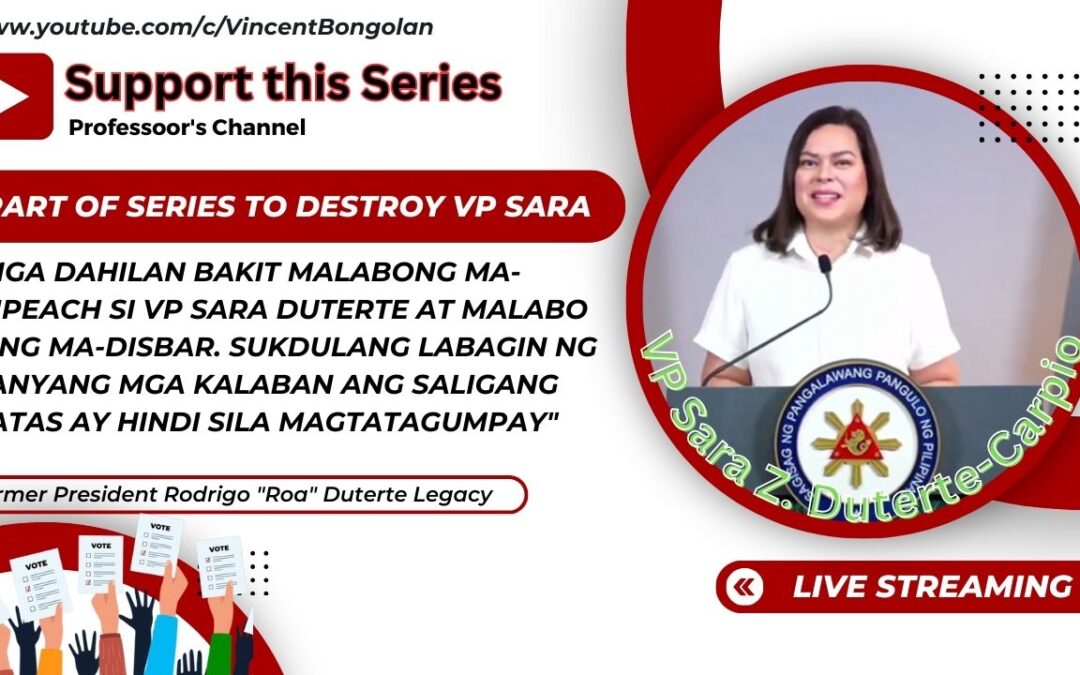Why Former President Rodrigo Duterte Cannot Be Held Liable for Crimes During His Term
Former President Rodrigo Roa Duterte’s war on drugs was one of the most controversial policies of his administration, drawing criticism from international human rights groups and political opponents. However, despite accusations of extra-judicial killings (EJKs) and human rights violations, no formal case has been successfully filed against him. This raises a crucial question: Is Duterte truly untouchable, or is there simply no legal basis to hold him accountable? A closer look at the legal, political, and evidentiary aspects of these accusations reveals why the former president cannot be held liable for crimes allegedly committed during his term.
Lack of Legal Basis for Criminal Liability
Under Philippine law, criminal liability requires clear and direct evidence linking an individual to a crime. While Duterte was vocal about his stance on eliminating drug-related crimes, statements made in public speeches do not constitute solid legal proof of wrongdoing. Courts rely on tangible evidence, such as direct orders, documented directives, or confessions from those involved in the alleged crimes. Without such concrete evidence, mere accusations and hearsay cannot hold up in court. To date, despite claims from certain lawmakers that they have volumes of strong evidence against him, no single case has been successfully pursued, proving that these accusations lack substance.
No Direct Link to Extra-Judicial Killings
One of the main criticisms against Duterte is that his aggressive anti-drug campaign allegedly led to thousands of extra-judicial killings. However, in a democratic system like the Philippines, law enforcement officers operate under their own command structure. While Duterte encouraged a tough approach against drug criminals, there is no direct evidence that he personally ordered unlawful killings. The Philippine National Police (PNP) and other law enforcement agencies act based on their protocols, and any misuse of force by individual officers should be attributed to them rather than the head of state. The absence of a smoking gun—an explicit order from Duterte to kill without due process—renders these allegations legally weak.
No Complaints Successfully Filed Against Duterte
Despite strong rhetoric from critics, particularly opposition lawmakers, no formal and successful complaint has been filed against Duterte in a Philippine court. The International Criminal Court (ICC) has attempted to investigate, but without the Philippine government’s cooperation, its jurisdiction remains questionable. Even during his term, when critics had opportunities to present their evidence in local courts, no criminal case reached a conviction or even an indictment. This suggests that either the allegations are politically motivated, or the evidence is insufficient to withstand legal scrutiny.
Presidential Immunity and Legal Protection
While Duterte was in office, he was protected by presidential immunity, which prevents sitting presidents from being charged with crimes during their term. However, even after stepping down, no substantial legal actions have been pursued against him. This indicates that even without the shield of immunity, Duterte’s opponents struggle to find enough legal basis to file charges. Furthermore, the principle of command responsibility applies only if a leader directly orders or ignores criminal actions by subordinates, which, again, has never been proven in Duterte’s case.
Political Motives Behind the Accusations
The lack of concrete cases against Duterte despite years of allegations suggests a strong political motivation behind the accusations. Many of his critics belong to opposition groups seeking to discredit his administration. The war on drugs, while controversial, was widely supported by millions of Filipinos who believed it helped reduce crime and drug-related violence. If Duterte were truly guilty of mass murder or systematic killings, it would be expected that clear, actionable evidence would have surfaced by now. The absence of such proof indicates that the accusations may be more about political narratives than actual legal responsibility.
Conclusion: No Proof, No Case
Duterte’s strongman leadership and controversial statements may have made him a polarizing figure, but in the realm of law, words alone do not constitute guilt. Without clear evidence, direct orders, or successful cases, there is no legal basis to hold him accountable for the alleged crimes during his term. His supposed invincibility is not due to power or influence but rather the failure of his critics to provide substantial proof. Until solid evidence is presented in court, Duterte remains legally untouchable—not because of immunity, but because the law requires more than accusations to convict someone.

